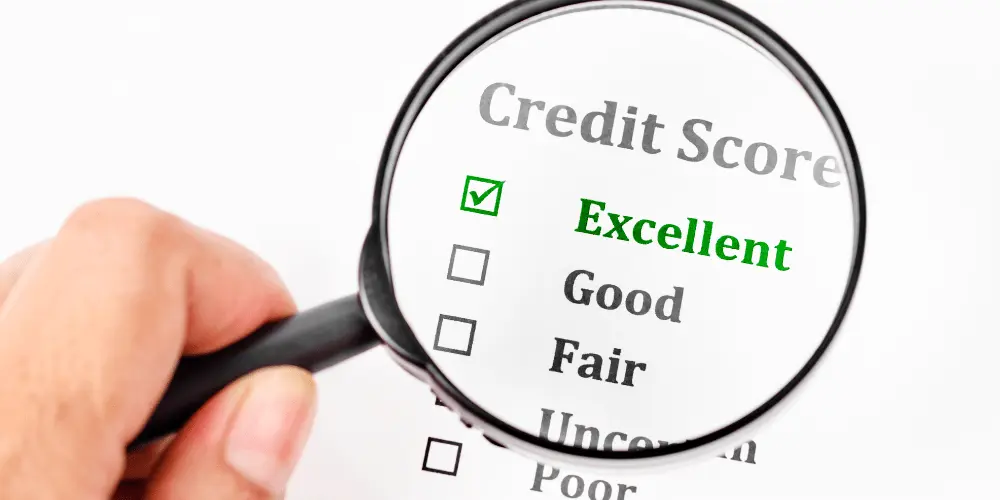
When you rent an apartment, your rental payments may not always be reported to credit bureaus. That means you could pay rent on time for years and never see a boost in your credit profile. Rent and credit are linked most strongly when landlords or rent reporting services share payment data with the major credit bureaus. Without reporting, your credit score may not improve, even if you make on time rent payments.
If your score is holding you back, there are still ways to move forward. Landlords often review credit before approving a lease, but you can prepare and strengthen your application. Learn practical steps in how to qualify for apartments with bad credit, including documents to bring, what to say to a manager, and how to show steady income.
Credit bureaus such as Experian, Equifax, and TransUnion are also called the three credit bureaus or credit reporting companies. They collect information on debt, bills, and even rental payment history. These records build your credit history and affect your credit score. Renters build credit only when payments are reported. Without reporting, your credit accounts, payment history, and positive credit history remain incomplete.
Credit reports summarize your credit card balances, loans, and payment history. They do not show other content, like your job history, so landlords focus only on financial behavior. They can also show rental payment history if your landlord or a service reports it. Reviewing credit reports helps you verify that information is accurate. You can request reports from all three credit bureaus for free once a year, and you should dispute errors quickly to avoid a negative mark that might negatively impact your score.
Credit history is the story of your borrowing and repayment over time. A strong credit history includes on time payments, low debt, and responsible credit card use. Poor payment history makes it harder to borrow money or qualify for a mortgage. Renters who pay rent on time and report rent consistently are more likely to establish credit, maintain good credit, and achieve financial goals.
Your credit score is a three-digit number used by lenders, landlords, and even utility companies. Payment history makes the biggest difference. Missed payments, medical bills in collections, or unpaid debt can hurt your score. Positive payment habits, like making payments by the due date and keeping credit card balances low, help improve your credit. Strong credit leads to easier approval for loans and better interest rates.
Rental payments matter when they are shared with the major credit bureaus. Rent is typically not reported unless you use a rent reporting service.. According to the Urban Institute, consistent rent reporting can help establish credit and build your credit over time. Services such as Esusu Rent, Boom, Rent Reporters, Rental Kharma, and LevelCredit allow tenants to report rent, but participation varies depending on the landlord and the service used. While these options can help you build credit, they may charge fees, so it is important to determine whether the benefits outweigh the costs.

Many renters assume they must take on a mortgage to build credit. In reality, you can build credit by making rent payments, using a credit card responsibly, and establishing other accounts like utilities. Use new credit cautiously, opening accounts only when necessary. Even if you never borrow money for a home loan, you can still maintain a positive credit history and show good payment history through reported rental payments.
If you do not already have credit accounts, you can establish credit by opening a secured credit card or signing up for rent reporting services. Opening a bank account and managing it responsibly can be an early step toward establishing credit. Even everyday purchases like groceries or gas can be used to build credit when paid off responsibly. Paying rent build credit is a growing option, since more landlords now partner with rent reporting services. Positive payment history is reported to credit bureaus, helping you develop a stronger credit profile.
Credit card use can either help or hurt. On time payments and low balances demonstrate responsible borrowing. If balances get too high, your credit score may drop. The Consumer Financial Protection Bureau explains how late rent can affect your credit, and similar rules apply to late credit card bills. To avoid problems, keep balances below 30% of your limit, make payments by the due date, and use credit cards responsibly for everyday purchases.
The FICO score remains the most widely used score by lenders and landlords. A strong credit score improves approval chances when applying for a loan, a rental, or even a phone plan. Missed payments, negative marks, or collections from a collection agency can lower your score quickly. Keeping a positive credit history with on time rent payments and other accounts helps improve your credit score over the long run.
Some renters wonder if apartment build credit is possible. The answer is yes, but only if rent reporting is in place. Programs like Esusu Rent or Boom send data to the three credit bureaus, which means that renters build credit each month just like they would with a credit card or auto loan. This process can affect your credit in a positive way and may even provide approval advantages when applying for new housing. Some renters may explore different strategies, like how to build renter credit without a credit card, to strengthen their files.
If missed rent or bills are turned over to a collection agency, a negative mark can appear on your report. This can negatively impact your ability to sign a new lease, get approval for loans, or repay debt at reasonable interest rates. Collections may remain on your file for years. If a collector makes false claims, you can dispute the debt and request verification. Federal law requires that collectors verify debts, and you have the right to remove inaccurate or misleading statements.
Rental payments are reported less often than credit card accounts, but their impact can be powerful. According to Experian, reported rent payments can help improve your credit score, especially if you have limited history. Renters can use services to report rent, create a positive payment record, and build your credit over time. Payment history makes up the largest share of your score, so consistently paying rent on time is one of the most important steps.
Renters can build credit with a combination of rent reporting, credit card use, and smart financial planning. Key steps include:
By following these steps, you can improve your credit score without taking on a mortgage. Even a short period of positive payment history can make a difference, and the benefits compound as your history grows.
For renters struggling with debt or past negative marks on their credit, the Rent4Recovery counseling program offers one-on-one support. You can also explore improving your credit score with our credit counseling advice to take the next step toward financial stability.
With persistence, you can improve your credit score, protect your housing, and move toward long-term financial stability.